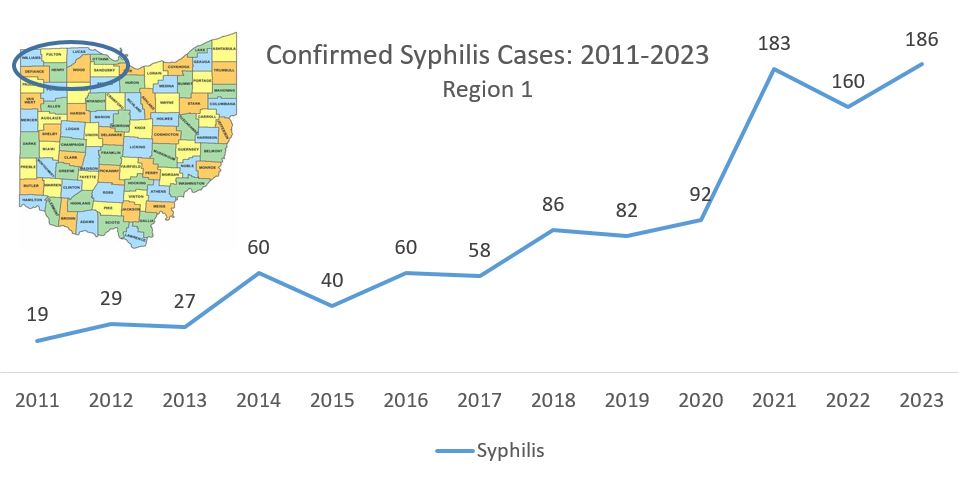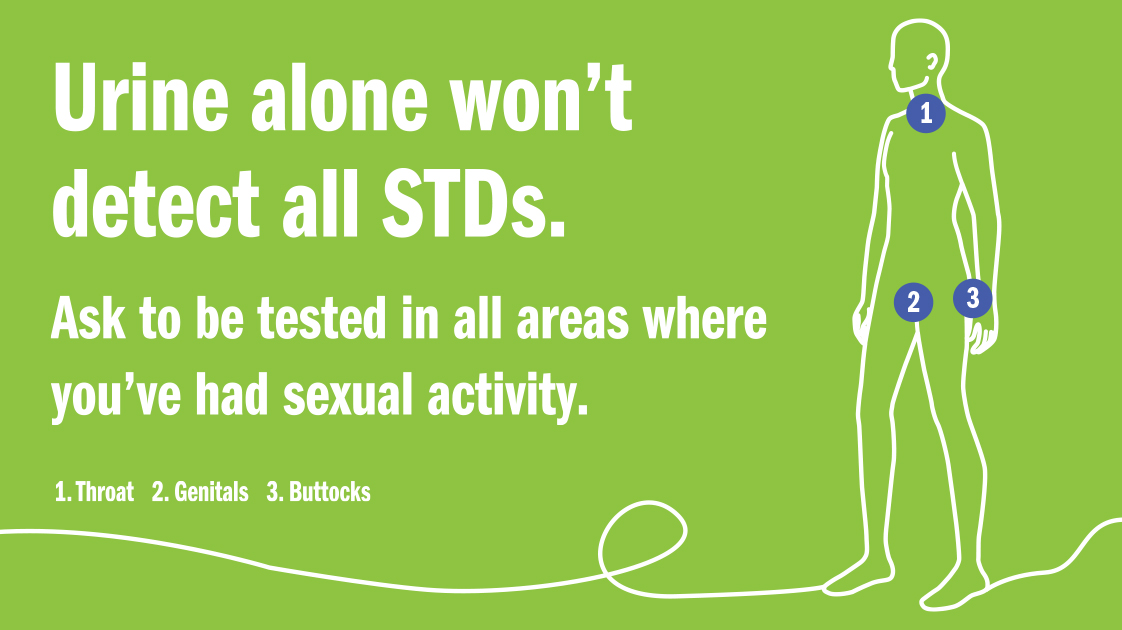“Early testing and diagnosis are key in stopping the spread of STIs. When left untreated, certain STIs can lead to long-term irreversible outcomes and some can be potentially fatal.” – Dr. Teodora Wi, WHO Global HIV, Hepatitis and STIs Programmes.
GET TESTED FOR SEXUALLY TRANSMITTED DISEASES (STDs)
To schedule an appointment, call 419-213-2013 or click here.
Testing for STDs is important. For certain STDs, such as gonorrhea and chlamydia, it is important to make sure you’re checking all of the places where an infection can occur. This is often referred to as “three-site testing.”
Three-site testing helps to make sure an infection isn’t missed especially since some STDs don’t cause signs or symptoms. Testing only urine can sometimes miss the infection.
This includes extragenital testing, which the CDC especially recommends for sexually active gay, bisexual, and other men who have sex with men. You can find more information on the specific circumstances here.
What determines the type of tests you should get?
Depending on the type of sex you are having, there are three body sites for STD testing: the throat, rectum, and genitals. It is important to let your healthcare provider know what sexual behaviors you are engaging in so you can discuss three site testing and determine the best STI tests for your specific needs.
You can find more information regarding the CDC’s recommendations on who should be tested for which infections and when here.
Why is testing important?
Data shows that men who have sex with men (MSM) are disproportionally represented in the rising numbers of chlamydia, gonorrhea, and syphilis infections. It is important that medical providers use extragenital STD testing, or three-site testing, to detect STDs and treat those infections as soon as possible.
Syphilis Statistics: The Increase Over the Years:
(Lucas and Surrounding Counties, as of 2022)





